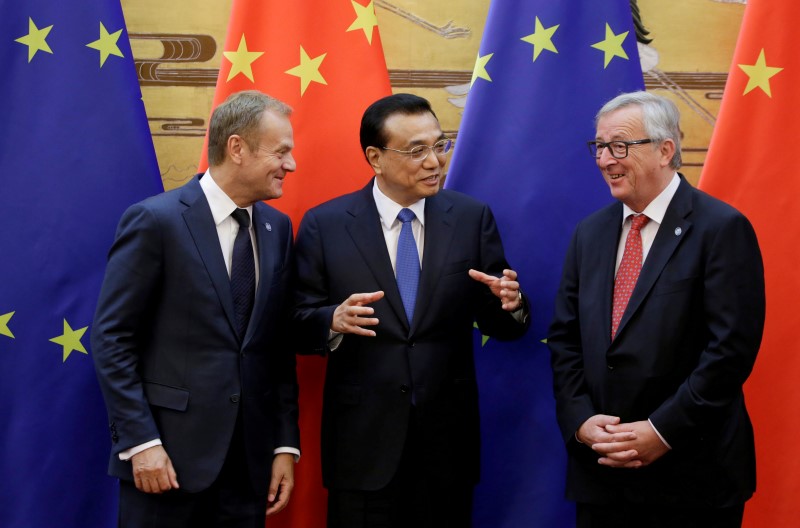BEIJING (Reuters) - China's Premier Li Keqiang told European Union officials on Wednesday that the country was committed to market reforms and remained determined to tackle a steel capacity glut that has sharpened tensions between the two sides.
Li, speaking at an EU-China business summit, said China had always abided by its commitments on reform, and would work to improve market access for foreign companies in the hope that all firms could compete on a level playing field.
"We want trade between China and Europe to grow on a stable platform," he said.
European enterprises working in China have long complained about unfair restrictions that make it difficult for them to compete with local rivals. European Commission President Jean-Claude Juncker told the summit that Beijing should remove barriers and improve legal certainties.
China's sprawling steel sector has come under global scrutiny after a record surge in cheap exports were blamed for plant closures in Britain and elsewhere, sparking a rise in anti-dumping complaints and putting the country's market economy status in jeopardy.
European Trade Commissioner Cecilia Malmström said that steel overcapacity needlessly pits Chinese and European workers against one another, while Juncker also warned that China's huge industrial capacity surplus should not be allowed to hurt relations with the European Union.
Li insisted that China was taking strong and determined measures to tackle the problem of overcapacity, adding that China does not use subsidies to give its industries a competitive edge.
"China's will to solve the problem of steel overcapacity is resolute and our measures are effective," said Li.
"We hope that the European side can look at this issue from an unbiased perspective," Li said, calling for the two sides to resolve trade disputes through bilateral discussions.
China is willing to speed up negotiations with the EU to secure bilateral investment deals, Li said, while also calling on the European Union to create a stable environment for bilateral trade.

China maintained sound economic growth in the second quarter, the premier said, but he warned that the basis for strong economic performance was not yet strong.